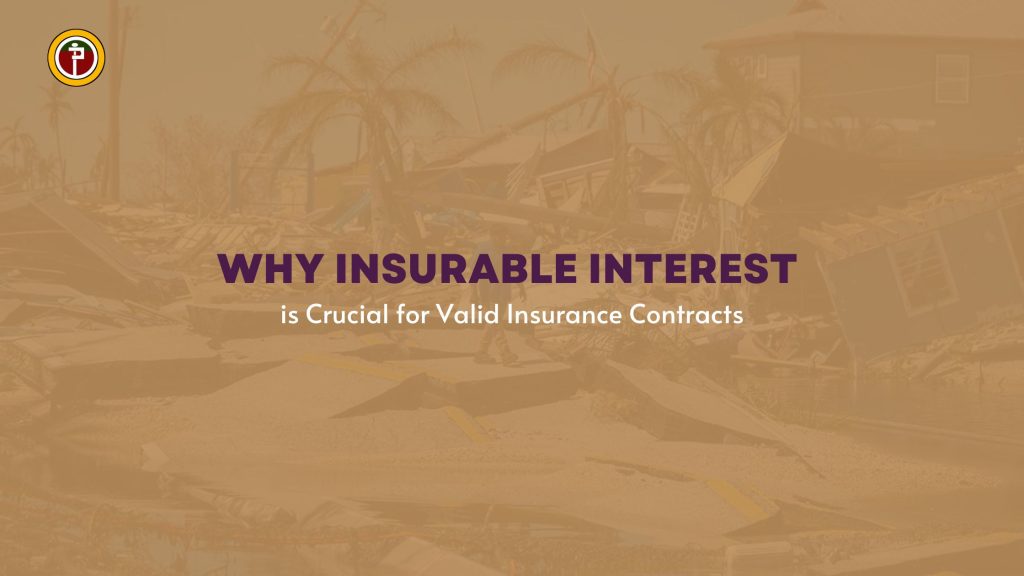In insurance, “insurable interest” is a core requirement that ensures people only take out policies on things they have a legitimate stake in, such as property, a loved one, or a business. This concept is essential to prevent fraud and make insurance a tool for genuine protection rather than speculation.
What is Insurable Interest?
Insurable interest means the policyholder would suffer a real loss if the insured asset were damaged or if the insured person passed away. This stake must be clear and legitimate. For example, a homeowner has an insurable interest in their home, while a spouse has insurable interest in their partner’s life.
Also read:
Understanding Insurable Interest in Nigerian Insurance
Understanding Insurance Principles: How They Affect Your Insurance Policies
The Role of Government in Promoting Disaster Insurance
Understanding Voluntary vs. Compulsory Excess in Insurance
Why Insurable Interest Matters
1. Prevents Fraud and Promotes Responsibility
Insurable interest ensures people can’t insure things they don’t own, reducing the temptation for fraudulent claims and discouraging reckless behavior.
2. Establishes Contract Legitimacy
Insurance aims to restore losses, not create profit. By requiring insurable interest, the law ensures that policies are used to protect genuine interests rather than speculate on others’ misfortunes.
3. Protects Insurers
Insurable interest helps insurers verify legitimate claims, preventing abuse and manipulation in the system. Without it, anyone could attempt to claim on policies for strangers or unrelated properties.
4. Limits Coverage to Actual Loss
Insurable interest aligns coverage amounts with real losses, ensuring policyholders don’t receive more than they stand to lose, and keeping policies fair and protective.
Types and Timing of Insurable Interest
- Property Insurance: Owners and lessees have insurable interest, as they would face financial loss if the property were damaged.
- Life Insurance: Family members and business partners often have insurable interest. Here, it’s usually required only at the time of the contract.
- Business Insurance: Companies can insure key employees and essential assets to protect their operations.
Insurable interest must generally be present when a policy is taken out and at the time of a claim, especially in property insurance.
Also read:
Understanding Insurable Interest in Nigerian Insurance
Understanding Insurance Principles: How They Affect Your Insurance Policies
The Role of Government in Promoting Disaster Insurance
Understanding Voluntary vs. Compulsory Excess in Insurance
Legal and Financial Implications
Without insurable interest, an insurance contract is legally invalid. This requirement is a safeguard in Nigerian insurance law, helping prevent misuse. If insurable interest is absent, claims can be denied, and premiums paid may be lost, posing legal risks to both insurer and insured.
In Conclusion, Insurable interest is foundational to insurance, ensuring policies provide real protection rather than speculative gain. It protects policyholders from undue loss, discourages fraud, and keeps insurance an effective safety net in Nigeria. Educating on this concept supports a trusted, stable insurance industry.
Take advantage of the next article, subscribe now!
Have questions about claim settlements or need assistance with your insurance policy? Our team is here to help! Reach out to us via email at info@tplng.com or give us a call at 0905-776-6182. We’re committed to ensuring genuine claim settlements and supporting our valued members.
TPL, your satisfaction is our priority




